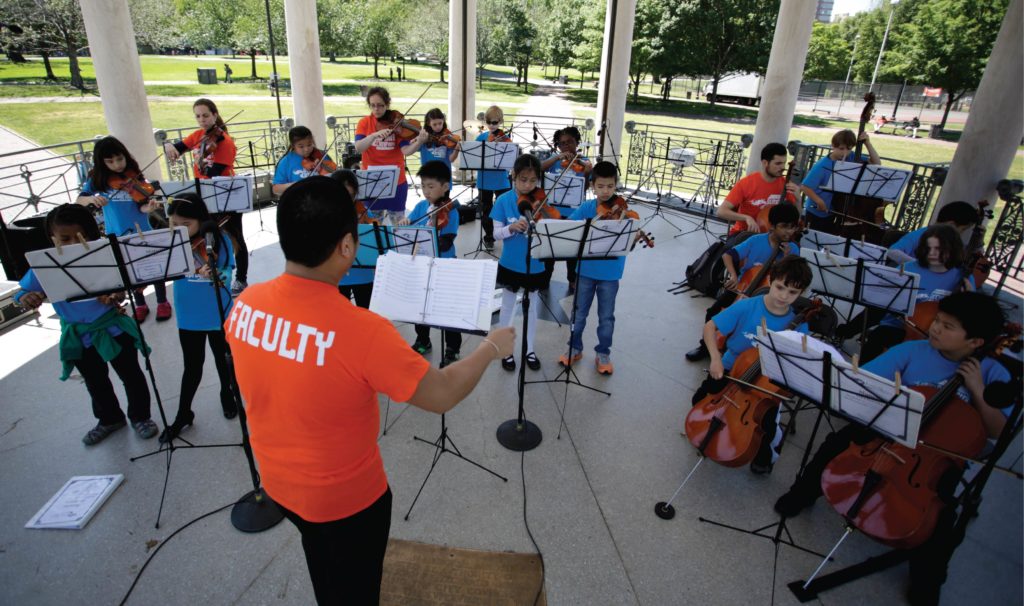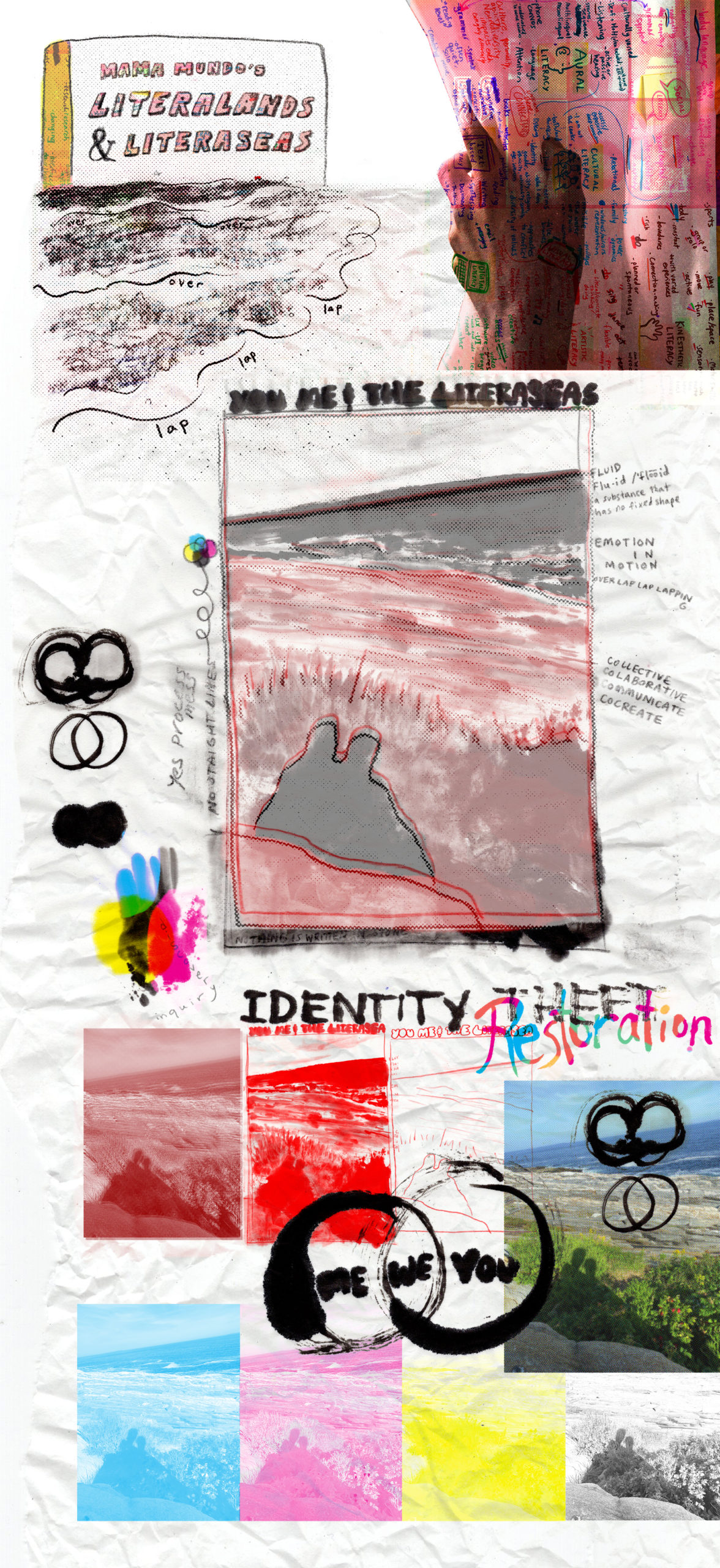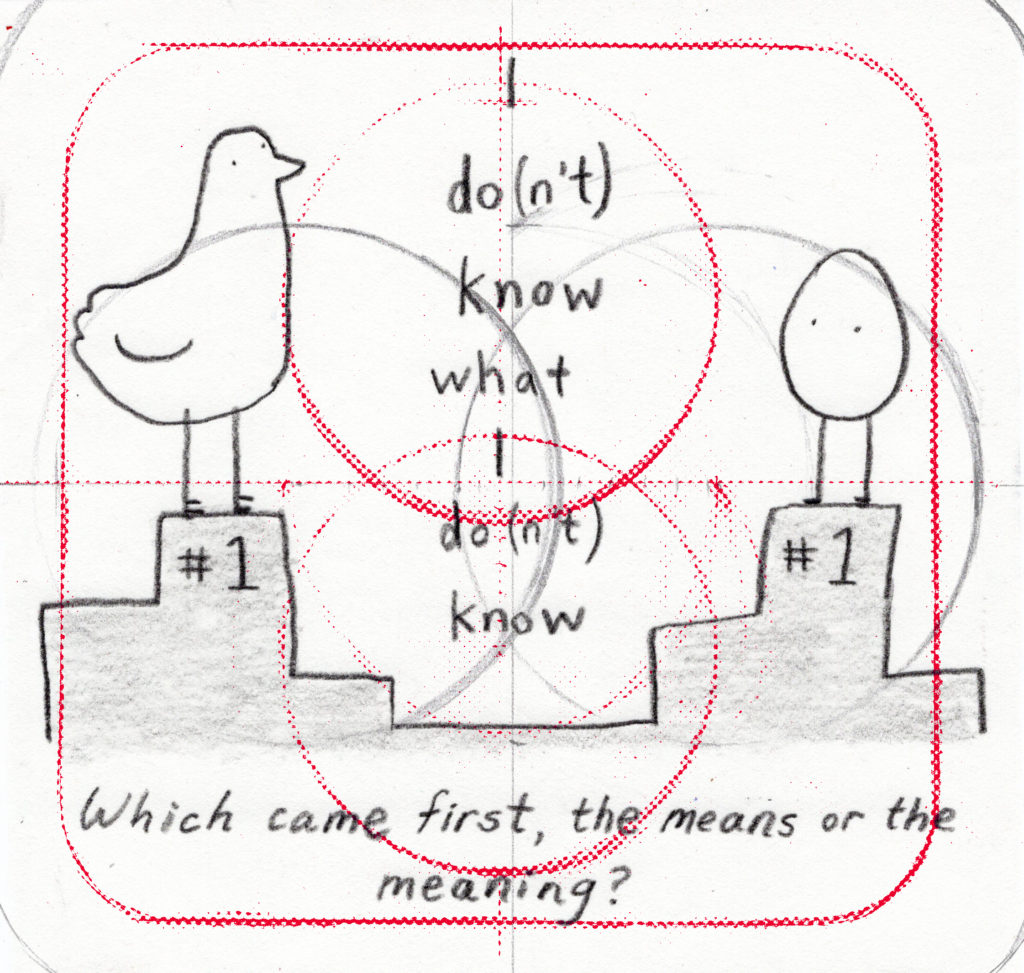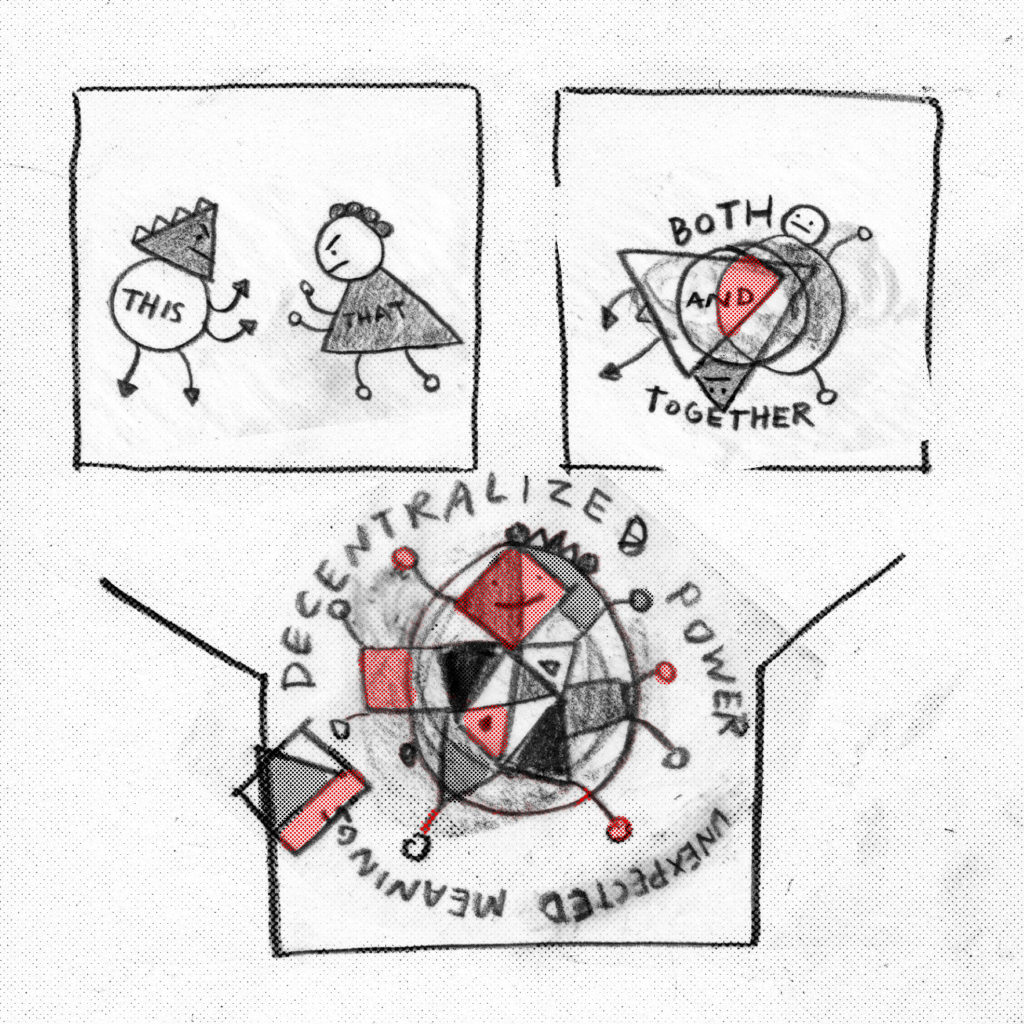New Study Shows Why Arts Education Matters

This photograph features a youth string orchestra performing outdoors in a covered park amphitheater. The background of the photograph shows the park’s greenspace with manicured lawns and trimmed trees. In the amphitheater, youth are positioned in rows based on musical instrument and are angled around the conductor in a semi-circle. The conductor is in the foreground of the photo with back to the camera. Youth are wearing blue t-shirts, and the conductor and performing staff are wearing orange t-shirts. Photo Credit: Courtesy of EdVestors.
As a theatre artist, no one needs to convince me that the arts have a powerful impact on youth. I have personally experienced and witnessed how the arts transform students’ learning experiences by fostering positive creative youth development outcomes such as self-confidence, collaboration and artistic skill-building. These intrinsic benefits are one of the reasons the organization I work for, EdVestors, has prioritized arts education as a focus area over the last 12 years.
The data collected by being the lead partner for BPS (Boston Public Schools) Arts Expansion have informed our collective actions over the years and gave us the opportunity to measure arts education impacts over time through a longitudinal research study. Supported by the Barr Foundation and conducted by Daniel Bowen, Ph.D., (Texas A&M University) and Brian Kisida, Ph.D., (University of Missouri) — scholars who have a track record in conducting arts education research studies, — The Arts Advantage: Impacts of Arts Education on Boston Students shows the positive outcomes on students over time from increased access to arts education.
The findings from existing arts education research tend to be based on small correlational studies or randomized control trials of specific programs for short periods of time versus more generalizable arts education experiences in authentic school settings at scale. The Arts Advantage encompasses an analysis of 11 years of arts education data and district data regarding student engagement, school climate and traditional academic outcomes to examine arts education impacts for K-12 students and includes over 1,500 variables and 615,000 student-level observations.
Overall, the study’s findings showed a positive impact on student and parent engagement for students who participated in arts courses at their schools. Specifically, the research found the arts improved attendance for all students, but even more so for those with Individualized Education Plans (IEPs) and who are chronically absent. This data may be particularly useful for education policymakers and administrators who have focused a great deal of attention on how to address chronic absenteeism during the past year.
Further, when more students enrolled in arts courses at their schools, the study found that teachers were more likely to report that students invested extra effort into their work and parents were more active at their child’s school. Students themselves reported greater levels of belonging at school and engagement in learning when their school days included arts education.
Those of us who are already passionate about the arts do not need further evidence about its immediate and long-term educational impacts. However, it is our hope at EdVestors that this large-scale, longitudinal study further validates the work we all do and provides strong quantitative, student-level evidence to strengthen arts education case-making and advocacy. This data-driven work can be used alongside the qualitatively focused stories that come directly from students, teachers and families. It is our hope that these findings also have resonance with the wider field, providing a foundation for future arts education research and evaluations.
Finally, policymakers and school districts can use this research as they make decisions on allocating resources for arts education and how it can be an effective strategy to strengthen student engagement, reduce chronic absenteeism and create a healthier and more positive school climate. Since schools play such a vital role in cultivating the next generation of citizens and leaders, it is crucial that we reflect on the meaning of a truly well-rounded education. The results of this research only strengthen the case that arts education should be recognized as a fundamental pillar of curriculum and that all students deserve access to quality arts experiences.
EdVestors is an education nonprofit with a mission to advance equitable, meaningful education that prepares every Boston student to activate their power and shape their future. As the lead partner in BPS Arts Expansion, an ongoing collaborative, public-private effort to expand equitable access to quality arts education for Boston public school students, EdVestors has always believed that the arts are an essential component of a student’s high quality, well-rounded education, and that it has a positive impact on student and family engagement, school climate, culture and community building.
Interested in learning more about this AEP partner’s work? Explore their initiatives that are helping Boston students thrive, and find out how you can get involved!



